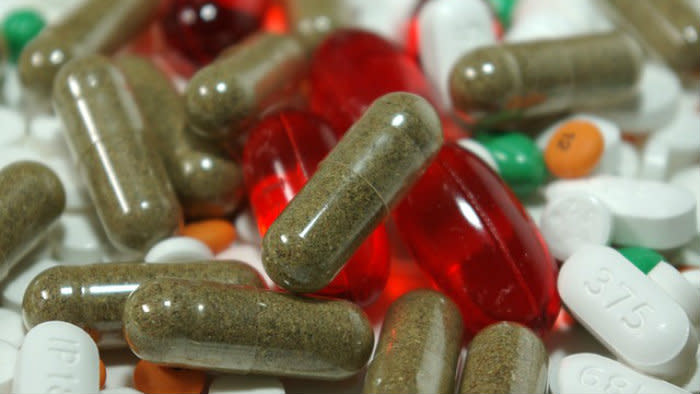Is Valeant Pharmaceuticals Intl Inc. “Investable?”

Is Valeant Pharmaceuticals Intl Inc. (TSX:VRX)(NYSE:VRX) investable?
While the quick answer to this seemingly straightforward question might be a resounding ?no,? thanks to Valeant?s scandalous history and $30 billion worth of debt on US$5.4 billion market cap, there are three positive factors of Valeant that make it hard to dismiss the company outright.
Core and non-core asset sales provide a lifeline
Valeant is in the midst of a turnaround with a major focus on deleveraging the company by $5 billion by 2018. The quickest way for Valeant to address its debt burden would be through asset sales (both core and non-core) and strong free cash flow generation.
And it would appear that after a few initial setbacks, the company is finally making headway; the company sold its skincare brands to L?Oreal for $1.3 billion earlier this year. Of course, the market would like to see more divestitures; many are hoping for sales of Valeant?s core ophthalmology and gastrointestinal brands, Bausch and Lomb, and Salix, of which the combined proceeds could fetch up to $20 billion, per Barclay?s estimates.
That being said, while core asset sales will bring in much-needed cash into the coffers, the company might be trading off a significant amount of future earnings from these brands; the more feasible path entails non-core asset sales, which would fetch $8-12 billion for the company.
Loss of exclusivity might not be that severe
Aside from its debt, the other hotly debated topic regarding Valeant pertains to the loss of exclusivity for some of its key drugs. In fact, Valeant has gone on record with an estimated $800 million revenue loss ? 60% of which will hit in 2017 thanks to this loss of exclusivity. However, estimates from Barclays are far less bearish: the bank forecasts the revenue impact to be around $650 million in 2017 as the drugs facing patent expiry have little or no immediate generic competition.
Robust pipeline means future free cash flow opportunities
Finally, a bullish case can be built around Valeant?s fairly robust pipeline. One such name that could generate free cash flow for the firm is Brodalumab, Valeant?s psoriasis drug, which is expected to launch later this year. According to Barclays, while the psoriasis market is crowded, Brodalumba has demonstrated strong efficacy in clinical trials and could eventually reach peak sales of $739 million by 2023.
Furthermore, Valeant?s second psoriasis drug, IDP-118, currently in phase three trials, has demonstrated strong efficacy in the top-line results released in December 2016. Barclays estimates a broadly addressable market as IDP-118 is topical in nature, and the vast majority of psoriasis patients are treated with topical regimens.
Finally, a more near-term pipeline opportunity is Vyzulti, Valeant?s open-angle glaucoma product. With a total addressable market of 1.5 million patients, Barclays estimates Vyzulti to launch in the second half of 2017, pending FDA approval, and eventually hit peak sales of $211 million by 2025.
The bottom line
As you can see, the question of whether or not Valeant is investable is a tricky one to answer. While we can quickly dismiss the troubled company thanks to its high levels of debt, due diligence dictates that we also look at all the positive factors that could signal a rebound for the company. With the potential of divestures, lower than expected revenue impacts from loss of exclusivity and a robust pipeline, Valeant may very well be an investable offering for the contrarian investor.
36-Year Old CEO Bets Over $300 Million on 1 Stock
Iain Butler, Lead Adviser of Stock Advisor Canada, recommended this little tech darling to thousands of loyal members last March... and those that followed his advice are up 127.7% (they've already made 2X their money!).
Not to mention this tiny Eastern Ontario company has already been recommended by both Motley Fool co-founders, David and Tom Gardner, because of its amazing similarity to an "early stage" Amazon.
Find out why Tom Gardner was recently on BNN's Money Talk raving about this company, and how you can read all about it inside Stock Advisor Canada. Click here to unlock all the details about his Canadian rule breaker!
More reading
Valeant Pharmaceuticals Intl Inc. Crushed by Citron Research: Find Out Who?s Next
Valeant Pharmaceuticals Intl Inc.: Should You Take a Contrarian Shot?
Fool contributor Alexander John Tun has no position in any stocks mentioned. Tom Gardner owns shares of Valeant Pharmaceuticals. The Motley Fool owns shares of Valeant Pharmaceuticals.
36-Year Old CEO Bets Over $300 Million on 1 Stock
Iain Butler, Lead Adviser of Stock Advisor Canada, recommended this little tech darling to thousands of loyal members last March... and those that followed his advice are up 127.7% (they've already made 2X their money!).
Not to mention this tiny Eastern Ontario company has already been recommended by both Motley Fool co-founders, David and Tom Gardner, because of its amazing similarity to an "early stage" Amazon.
Find out why Tom Gardner was recently on BNN's Money Talk raving about this company, and how you can read all about it inside Stock Advisor Canada. Click here to unlock all the details about his Canadian rule breaker!
Fool contributor Alexander John Tun has no position in any stocks mentioned. Tom Gardner owns shares of Valeant Pharmaceuticals. The Motley Fool owns shares of Valeant Pharmaceuticals.

 Yahoo Finance
Yahoo Finance 